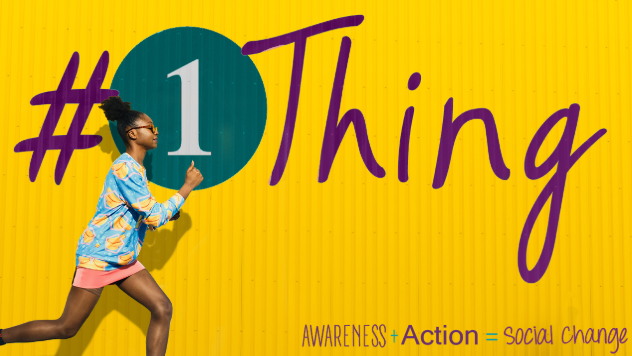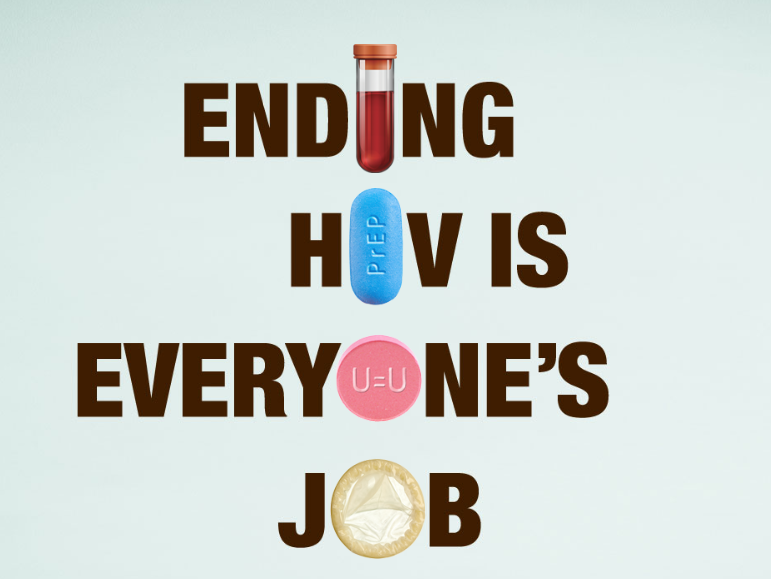 |
PCHHC In The News
We were proud to see our own Dr. Diana Ramos featured prominently in the American Medical Association's "Being a Women in Medicine" video for #WIMMonth. It is a powerful must-watch:
Click to watch it.
Dr. Ramos represents PCHHC in the news pretty often. Here are a few pieces you'll see featured on our
Instagram Stories
:
|
Quality Improvement: PDSA Cycles and Implicit Bias
Preconception IM CoIIN teams are thinking about factors that lead to effective, appropriate screening for mental health and interpersonal violence. Provider biases and trust is discussed in the below short clips as it relates to consumer engagement, data collection, measurement, and Plan, Do, Study, Act cycles.
How Does Implicit Bias Affect Health Care?
Implicit bias influences decision making in many ways. Watch this brief video to learn how bias affects health care on numerous levels.
Bias holds individuals, organizations, and entire economies back from achieving their full potential by limiting who participates and these effects percolate across sectors. This brief video further discusses the disservices of biased health care.
This video explains the PDSA Cycle (Plan, Do, Study, Act) and how it can be used as an engaging team-building activity. This game can be used to demonstrate how theory, prediction, real-time data collection, and measurement contribute to the understanding of rapid-cycle PDSA testing.
Most measurement data is not examined until long after collection. Monitoring asks what do we need to know now? Watch this video to learn more!
|
Information for
Preconception IM CoIIN State Partners
 The IM CoIIN Web Platform is live now! All members of the team should have received an email from the IM CoIIN DATA Contractor with information about how to sign up for this space - which is a private and secure online platform to promote sharing and collaborative learning within our CoIIN Team and across the IM CoIIN. The platform allows for exchange of information and resources, as well as a space for learning and improvement through data and shared measurement. If you have not signed yet, please email Katherine Bryant and she will connect you [email protected]
. The IM CoIIN Web Platform is live now! All members of the team should have received an email from the IM CoIIN DATA Contractor with information about how to sign up for this space - which is a private and secure online platform to promote sharing and collaborative learning within our CoIIN Team and across the IM CoIIN. The platform allows for exchange of information and resources, as well as a space for learning and improvement through data and shared measurement. If you have not signed yet, please email Katherine Bryant and she will connect you [email protected]
.
|
|
October is a month filled with awareness events (you are already seeing pink in all the stores for
Breast Cancer Awareness!). We wanted to highlight a few resources and partners that provide great content and resources with initiatives related to our work:
Health Literacy
- Creating campaign messages that are relatable and understandable are much more efficient if you know the appropriate literacy and tone that best reaches your audience. Follow @HLMedia and
@CommunicateHealth
or
read their blog
for tips about creating effective health content and plain language health terms.
 Domestic Violence Domestic Violence -

|
#PartneringWithPurpose
Event Spotlight
WOMEN FIRST -
the 2018 CityMatCH and MCH Epi Conference in Portland kicked off the conference asking attendees to consider "What will you do to ensure women are SEEN as WOMEN FIRST?" We loved this conversation and hope it continues in MCH spaces.
Our favorite social media soundbites from the conference include:
- "Protest any labels that turn people into things."
- "Optimism is a form of resistance."
- "Health is politics on a grand scale."
- "Interventions with the highest impact change the context to make individuals' environments healthy."
- "As the earned income tax credit increased, infant mortality decreased exponentially."
- "ACE screening often is conflated with intervention, but screening is not treatment."
photo: Chemyeeka Tumblin at Nashville Public Health attended as a CityLeader and a Show Your Love Preconception Health Ambassador. She posted on the ground coverage of the conference, which can be viewed on her
Instagram Profile Highlight "CityMatCH."
|
Preconception IM CoIIN State Spotlight
The North Carolina IM CoIIN team gathered people from across the state for a full-day human-centered design workshop in August. North Carolina is working with three local clinical partners from across the state. Local partners are recruiting community members and consumers to work with them in the design process.
Have you seen the new
Preconception CoIIN section on Beforeand Beyond.org?
Newsletters, webinars, and other resources are
organized there, and are open access.
Is your state interested in staying more closely connected to our CoIIN work? If yes, please
email Suzanne Woodward
!
|
|
|
Stay connected! Follow along and join the conversation:
|
|
ABOUT HRSA IM CoIIN PRECONCEPTION PROJECT: This project is supported by the Health Resources and Services Administration (HRSA) of the U.S. Department of Health and Human Services (HHS) under grant number UF3MC31239-Providing Support For The Collaborative Improvement and Innovation Network (CoIIN) To Reduce Infant Mortality. The grant amount totals $1,494,993. This information or content and conclusions are those of the author and should not be construed as the official position or policy of, nor should any endorsements be inferred by HRSA, HHS or the U.S. Government.
|
|
 |
|
 |
The PCHHC vision underscores the importance of the well-being of young women and men - physically, emotionally, socially and economically. This month's newsletter focuses on emotional health. This is a critical topic, as behavioral health and substance use disorders effect nearly
1 in 5 US adults. Research and policies are finally beginning to address the public health crisis related to mental health, but too many young adults are still living undiagnosed and untreated.
In this issue, you'll read about the
importance of focusing on behavioral health during the preconception health years, including research about the effects mental health disorders have on fertility and birth outcomes and work being done to break the stigma surrounding mental health.
|
Studies have shown
that managing mental health conditions BEFORE pregnancy can help to prevent negative outcomes for the women and her family. Women with untreated mental health disorders are at high risk for unintended pregnancies. Further
, Non-Hispanic women of color living with a mental health condition have
35% higher odds
of having pregnancy complications than white (non-Hispanic) women with the same condition. Women who receive quality care for their mental health disorders can achieve their goals for a healthy family - the key being that they have a trusted provider and resources to support their well-being.
Although there is a high prevalence of behavioral health conditions in young adults, a lot can be done to screen, treat, and support them during their preconception years. Too many young adults go without mental health or substance use disorder treatment. Screenings should be provided to people of all ages and genders. Earlier identification of disorders, beginning with primary care and opportunistic health settings, as well as regular screening, translates into earlier care. In turn, we can make sure young adults receive proper treatment to improve their well-being and holistic health, so they can achieve their goals.
Some mental health disorders are more common in women, and women may experience symptoms differently. Mental Health America created a
"Mind Your Health" Screening Tool that allows young adults to learn about signs, symptoms, and treatments available.
Project Semicolon also has a great screening tool for young adults to instantly and automatically complete and learn about their results. While this should never replace professional screening, diagnosis, and treatment by professionals, it may be the first step for a young adult in beginning the conversation.
Helping young adults to understand their conditions as well as treatment options will help them proactively manage their mental health. Here's an overview of some common behavioral health conditions:

Anxiety is a normal reaction to stress and can be beneficial in some situations. However, anxiety disorders are serious and occur earlier in women than in men. From the time a girl reaches puberty until the age of 50, she is
twice as likely to have an anxiety disorder. There are a wide variety of anxiety disorders, though the five major types include generalized anxiety disorder (GAD), post-traumatic stress disorder (PTSD), obsessive-compulsive disorder (OCD), panic disorder and social anxiety disorder. Collectively, they are among the most common mental challenges experienced by Americans.
Depression is a condition in which a person feels discouraged, sad, hopeless, unmotivated, or disinterested in life in general. But it can be
more than that. The sooner treatment begins,
the more effective it is. Depression is common and can be serious:
1 out of 10 women in the United States experience symptoms of depression.
All too often today's society idealizes the concept of "thinness." As a result, women are rarely satisfied with their body image and often feel great anxiety and pressure to achieve and/or maintain a certain appearance.
Eating disorders are illnesses that cause serious disturbances to the everyday diet. Disordered eating can lead to life long fertility issues and even death. Therapy works but can be expensive and sometimes not well reimbursed.
Although there are many similarities between men and women when it comes to
substance use and dependence, there are also many differences. Some of the differences for women center on the physical effects of dependence, while others focus on how women relate to their families, their communities, and their children. The US is facing a crisis surrounding opioid use disorder. To learn more about the Health Resources and Services Administration's (HRSA) efforts to combat the opioid epidemic and HRSA-supported resources, visit
https://www.hrsa.gov/opioids. Learn more about supports with MotherToBaby's opioid-specific fact sheets and free information over its confidential helpline (866) 626-6847, text service (855) 999-3525 and live chat/email on
https://mothertobaby.org/opioids/. For women who are
having problems with addiction, there is Hope, there is Help, and there is Healing.
 Bipolar mood disorders cause shifts in a person's mood, energy, and ability to function. Bipolar mood disorder symptoms can result in damaged relationships, poor job or school performance, and even suicide. There is no cure for bipolar mood disorder. But
proper treatment can help most women with the disorder gain better control of their mood swings and related symptoms.
Schizophrenia is one of the most chronic and disabling of mental health disorders. It is a disorder that causes symptoms of psychosis, such as: hallucinations (hearing voices or seeing things that don't exist); delusions (bizarre thoughts that are not based on truth or fact); disordered thinking; and social withdrawal. Although equal numbers of men and women are affected with this disorder, women with schizophrenia may have more depressive symptoms, paranoia, and auditory hallucinations than men. Fortunately, treatments such as medications, when used regularly and as prescribed, can help reduce and control many symptoms; however, like diabetes or high blood pressure, schizophrenia is a chronic disorder that needs consistent management.
Resources for Consumers and Health Care Providers:
For general information on behavioral health and to locate treatment services in your area, call the Substance Abuse and Mental Health Services Administration (SAMHSA) Treatment Referral Helpline at 1-800-662-HELP (4357). SAMHSA also has a
Behavioral Health Treatment Locator on its website.
Mental Health and Addiction Insurance Help answers questions about insurance coverage for mental health care.
The National Council on Alcoholism and Drug Dependence also has great resources (800) 622-2255,
https://ncadd.org/
|
One Key Question (R) and Behavioral Health Screening
 Regardless of the reason a women is seeking care, asking about her reproductive health goals and life plans is critical to ensure she has the information needed to make choices about managing her conditions and appropriate treatment. Regardless of the reason a women is seeking care, asking about her reproductive health goals and life plans is critical to ensure she has the information needed to make choices about managing her conditions and appropriate treatment.
While behavioral health providers may not routinely use OKQ, they should! Therapists can connect women who are at risk of an unintended pregnancy with appropriate services. Further, all women of reproductive age should be screened for the use of teratogenic medications
and should be counseled based on their reproductive goals.
|
|
Equity in Mental Health
 Mental health messages can be very damaging if not properly vetted, with an understanding of a communities values, beliefs, sexual orientations, etc. Further, provider mistrust, biases, historical trauma, racist structures or policies, and seeing people out of the context of their environment can create a barrier in trustworthy, competent care and an extra layer to the stigma that already exists.
Mental Health America has a great resource,
Cultural and Linguistic Competency
.
The JED Foundation and Steven Fund put together a
Mental Health Equity Framework
, for students of color, but it can be applied to health systems.
|
|
The Rise and the Importance of "Mental Health Days"
 Even for those not suffering from clinical levels of depression and anxiety, the occasional "mental health day" is a valuable form of prevention. As team members, we can push for policies to allow paid leave to include time-off to reset our minds and bodies.
A good place to start? Take a few mental health hours. Rather than letting the stress build, allow a few hours to break from your regular routine to focus on your mental wellness. Creating a culture that values mental wellness is important! Leaders and supervisors can have open conversations with team members about appropriate ways to manage a healthy work-life balance.
Learn more about how to take a mental health day & why you should.
Even for those not suffering from clinical levels of depression and anxiety, the occasional "mental health day" is a valuable form of prevention. As team members, we can push for policies to allow paid leave to include time-off to reset our minds and bodies.
A good place to start? Take a few mental health hours. Rather than letting the stress build, allow a few hours to break from your regular routine to focus on your mental wellness. Creating a culture that values mental wellness is important! Leaders and supervisors can have open conversations with team members about appropriate ways to manage a healthy work-life balance.
Learn more about how to take a mental health day & why you should.
Perhaps of even more importance, there are millions of American workers who are not compensated for sick or vacation days. Without paid time to take a break or visit a doctor it can be challenging to manage mental health and other challenges. Millions of other workers do not receive health insurance. A real commitment to mental health and wellness is essential at a policy and personnel level.
|
Preconception Health Bi-weekly Updates
|
We've seen multiple studies published this year concerning the mental health of young adults - relating to preconception health care and measures. Be sure you receive the
the
CDC's bi-weekly updates on preconception and interconception health - chock full of research, articles, new campaigns and resources. Email
Cheryl Robbins
([email protected]) with "subscribe." A great resource for everything happening in the industry, across the country - and world!
|
|
|
 |